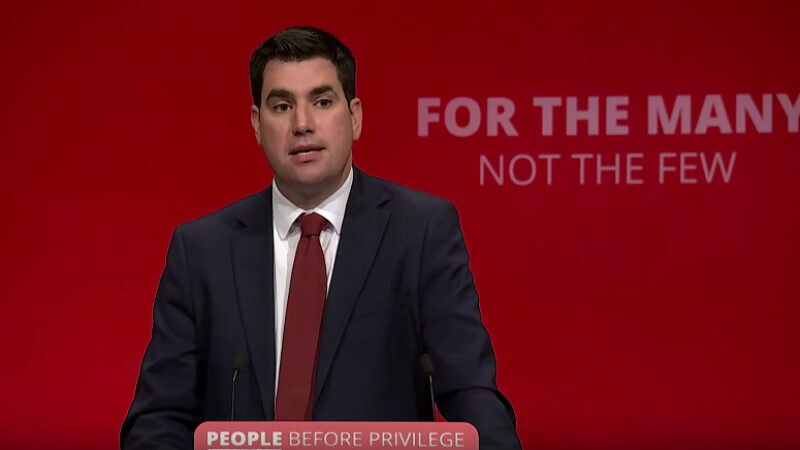
The government’s approach to fighting coronavirus has been an unmitigated disaster, leaving us with one of the highest death tolls in the world. It’s heartbreaking to think that tens of thousands of lives could have been saved had we kept the death rate to the levels seen in Germany, South Korea or New Zealand.
The summer should have been used to eliminate the virus, as other countries have successfully done. Instead, the moment was squandered and government messaging gave the impression that we were heading back to normal: ‘go out to restaurants’, ‘go back to the office’, ‘send your kids back to school’ and ‘reopen universities’.
Cases are soaring again at a very worrying rate. Appallingly, rather than take responsibility, the government has sought to blame young people for the rise in coronavirus infections and claim that the shortage of tests is caused by people getting tested unnecessarily. The current vacillating strategy and blame-shifting games can’t go on. While the government’s new ‘hands, face, space’ message and the ban on gatherings of more than six people will all help, it’s not a solution in and of itself.
What is the way forward? Along with a number of my colleagues, I believe it’s time for a ‘zero Covid’ strategy of the kind advocated by Independent SAGE to eliminate the virus, and as other countries such as New Zealand have successfully implemented. If we don’t manage to get the virus under control, we’ll just continue to flit from one crisis to another. People won’t be able to get on with their lives. Businesses won’t be able to plan. Yet more lives will be unnecessarily lost. Reducing the virus to minimal levels is not in contradiction to economic recovery. It is the precondition for economic recovery.
A zero Covid approach is the way we can return to something more like normality. But it means the emphasis must be on eliminating the virus, not living with it. The results of those countries pursuing a zero Covid strategy are remarkable. According to the European Centre for Disease Prevention and Control’s latest worldwide report, the UK had 26,000 confirmed Covid cases over the past 14 days. In contrast, New Zealand has had 90, China 316, Iceland 71, Vietnam 25 and Thailand 50.
While the benefits of a zero Covid strategy are clear, getting there requires a radical shift in the government’s policy focus. It means ramping up the testing levels so people can easily get a test locally and have their results back in 24 hours. For all the Prime Minister’s bragging at PMQs that there’s the capacity for 320,000 coronavirus tests per day, the latest figures on the government’s own website show that around 180,000 tests are being done per day. It’s simply way off what’s needed.
A key part of replacing the current failing NHS Test and Trace model with something fit-for-purpose is to ensure that new investment in testing goes into building local NHS capacity, not on more outsourcing. Labour’s frontbench has pointed out the flaws in continuing to hand over wheelbarrow loads of cash to private companies who aren’t reaching enough of the contacts of those who test positive. In my time as Shadow Justice Secretary, I saw how private companies like G4S and Serco ripped off our justice system. I find it disturbing that the government is now planning to hand over many more billions to these companies in its latest Covid testing programme revamp.
Alongside the testing and tracing that we have all become familiar with, a zero Covid strategy places greater emphasis on providing support to people who test positive so they can self-isolate. Such support must include proper sick pay for people so that they can avoid work without fear of getting into debt. The TUC has pointed out that 4 in 10 workers can’t currently afford to self-isolate or pay their bills on statutory sick pay. We need to raise sick pay to the Real Living Wage levels. Action on rents must also form part of such support.
It also means that we have to use the power of government to find innovative solutions as we adapt to new ways of living our lives. For example, we all want to see children safely back in school, so how do we limit the risk? One obvious policy would be to rehire all qualified teachers not currently in work and to use other spaces – sports halls, libraries, or local business premises – as classrooms to create smaller, safer classes. And it means we have to stop the push for people to return to their usual workplaces if they wish to keep working from home.
The government is now talking of ‘Operation Moonshot’. But we need solutions that are tried and tested, not more empty rhetoric. We can defeat this virus – but it means the government must admit that it’s got it wrong so far, change track and go for zero Covid. The entire labour movement will need to unite around zero Covid if we are to force the government to budge.




More from LabourList
Tom Belger column: ‘Why is Labour making migrant exploitation easier?’
Ashley Dalton resigns as health minister for cancer treatment
Paul Nowak column: ‘Labour must focus on the basics’